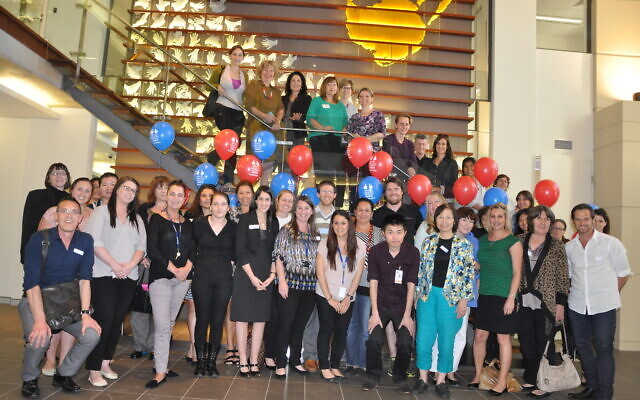JewishCare cuts staff after $2.48m loss
Decisions followed an “extensive review”; were “extremely difficult” but necessary, CEO says
JewishCare CEO Gary Groves told The AJN this week that a round of recent redundancies at the organisation was “absolutely necessary” to ensure its future.
Groves was responding to a range of questions The AJN put to him after learning from sources that up to ten staff in Community Services were informed last Monday their roles were being abolished. Independently of The AJN’s approach, he had already drafted an op-ed explaining JeiwshCare’s decisions, an updated version of which appears below.
In light of JewishCare reporting losses of $877,000 and $2.48 million in 2021-22 and 2022-23 respectively, Groves told The AJN the decisions – which followed an “extensive review” – were “extremely difficult” but necessary. He also refuted anonymous reports that the staff members were overwhelmingly older Jewish women.
“Staff affected range from 24 to 73 and are from various backgrounds,” he said.
“These redundancies were made having regard to the ongoing support needs of JewishCare’s clients and the Jewish community more broadly, relative to the existing staff levels within the organisation.
“The ratio of Jewish to non-Jewish staff remains materially the same as it has been for an extended period.”
He said affected staff members had been offered support “including redeployment into aged care within JewishCare, or should they not wish to take this, interview, resume writing and application writing training to help them apply for new roles.”
“No front-line staff are affected by these redundancies and because we were previously overstaffed, we anticipate no impact on service levels or quality for our clients even if we see increased demand for services,” he said.
“To the extent that existing staff are required to take on additional workload, this will be managed to ensure that it is reasonable and that they have the capacity and willingness to take it on.”
While he said JewishCare appreciated it is currently a time of heightened anxiety for the community, “It is necessary to enact decisions for the good of JewishCare and its constituents without delay.
“Services, including supporting those who are adversely affected by the events in Israel, will continue without interruption,” he said, adding that “JewishCare has the capacity alongside its communal partners to respond as required” to an expected influx of more than 1000 traumatised Israelis to Australia, many of whom will settle in Sydney.
Asked whether the organisation had looked elsewhere – including upper management – to make savings rather than cull from the coalface, he said, “There has been no significant increase in personnel in upper management over the past three years.”
Groves did admit that staff had previously been told there would be no redundancies.
“During the realignment many months ago, this was correct. Redundancies are always the last option and, until we conducted the recent review, we had no intention of making any cuts,” he said.
He also stood by a Facebook comment made by JewishCare, that “we want to reassure our community that we have not made any cuts or reductions to our DV services or family support programs”.
“As has been the case with all service areas, staffing levels for DV were overlaid with the case load and community service requirements when determining where cuts could be made without affecting services,” he said.
“We stand by the statement that DV and family support services will not be adversely affected by the redundancies.”
The AJN also put to Groves how JewishCare justified the expense of undergoing recent internal renovations to its Fischl House headquarters, which was purpose-built and opened in 2012.
“Minor capital works were completed last year and were necessary to ensure Fischl House continued to be a safe and comfortable work environment for all staff,” he said.
“These were were capital works, they did not have an impact on the P&L.”
JCA told The AJN that JewishCare’s Board had informed its Allocations Committee of the sectoral challenges it is facing in they most recent meeting, including the organisation’s increasing compliance standards and costs that have arisen and severely impacted JewishCare following the two Royal Commissions into the NDIS and aged care industry.
JCA said is satisfied with the oversight and governance of the JewishCare board.
“It is never JCA’s role to micromanage or interfere in the operations of an organisation but rather to ensure the core needs and services of our community are maintained in a sustainable and efficient manner,” JCA president Ian Sandler said.
“In this instance we are satisfied this is what JewishCare’s Board is endeavouring to do. Unfortunately, the increasing regulatory and cost challenges within both the NDIS and aged care sectors means that the entire industry needs to become more efficient, or else mounting compliance costs will result in unsustainable services.”
JCA CEO Alain Hasson said, “As part of the annual JCA allocations process, the Allocations Committee considers numerous forms of information, including financial.
“JCA is often the last dollar available to our member organisations. Therefore, there is always an expectation constituent organisations are run as efficiently as possible, while achieving the highest possible level of service and thereby ensuring every donor dollar is stretched to have the greatest possible impact.
“This is the challenge of every charity and fundraising organisation. The challenges JewishCare are facing are not unique to organisations operating in its category, but we understand the Board is focused on finding sustainable solutions all the while ensuring services aren’t compromised.”


comments